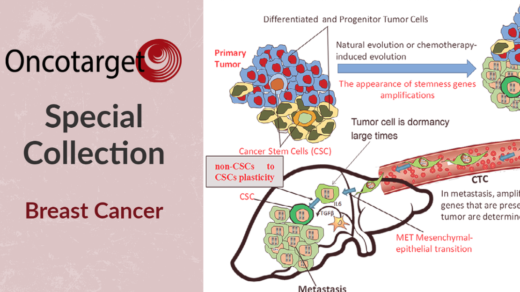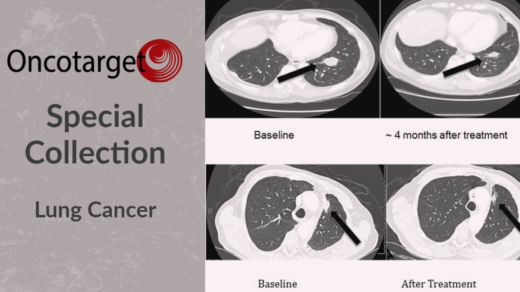In this study, researchers investigated the antitumor effects of Sacituzumab govitecan in combination with platinum-based chemotherapy.
The relentless search for effective cancer therapies has led to numerous breakthroughs in drug discovery and development. Advancements have emerged in recent years through the promising avenue of combination therapy, where two or more drugs are used synergistically to enhance their collective therapeutic effect. This strategy has shown significant potential in overcoming drug resistance, reducing side effects, and improving patient survival rates.
In a new study, researchers Thomas M. Cardillo, Maria B. Zalath, Roberto Arrojo, Robert M. Sharkey, Serengulam V. Govindan, Chien-Hsing Chang, and David M. Goldenberg from Gilead Sciences and the Center for Molecular Medicine and Immunology demonstrated the significant antitumor effects of Sacituzumab govitecan, an anti-Trop-2-SN-38 antibody-drug conjugate, in combination with platinum-based chemotherapy. On February 22, 2024, their research paper was published in Oncotarget, entitled, “Sacituzumab govitecan plus platinum-based chemotherapy mediates significant antitumor effects in triple-negative breast, urinary bladder, and small-cell lung carcinomas.”
Sacituzumab Govitecan & Platinum-Based Chemotherapy
Sacituzumab govitecan is an innovative drug that has gained prominence in recent years due to its unique mechanism of action and remarkable antitumor effects. It is an antibody-drug conjugate composed of an anti-Trop-2-directed antibody linked with the topoisomerase I inhibitory drug, SN-38, via a proprietary hydrolysable linker. Trop-2 is a transmembrane glycoprotein that is highly expressed in various solid tumors, making it an attractive target for cancer therapy. SN-38, the active metabolite of the chemotherapy drug irinotecan, is a potent topoisomerase I inhibitor that triggers DNA damage and apoptosis in cancer cells.
Platinum-based chemotherapy, primarily cisplatin and carboplatin, is a cornerstone of cancer treatment. These drugs work by interfering with DNA replication in cancer cells, leading to cell death. However, their use is often limited by drug resistance and toxic side effects.
“Using multiple drugs to treat cancer may allow for direct activity against multiple targets simultaneously or may indirectly affect the same target through different mechanisms of action [16].”
The Study
The combination of Sacituzumab govitecan and platinum-based chemotherapy has the potential to overcome these limitations. In the current study, the researchers found this combination to produce significant antitumor effects in various cancer models, including triple-negative breast, urinary bladder, and small-cell lung carcinomas. They found that the combination treatment resulted in additive growth inhibitory effects in vitro. The combination led to significant down-regulation of anti-apoptotic proteins and up-regulation of pro-apoptotic proteins, suggesting a shift towards pro-apoptotic signaling.
The in vivo efficacy of the combination therapy was further confirmed in mice bearing human tumor xenografts. The combination of Sacituzumab govitecan and carboplatin or cisplatin resulted in significant tumor regressions in all tested models. Importantly, the combination therapy was well tolerated by the animals, indicating a favorable safety profile.
Conclusions
The findings from this study represent a significant leap forward in the field of chemotherapy combination therapy drug discovery. The team provided strong evidence to support the clinical investigation of Sacituzumab govitecan in combination with platinum-based chemotherapy for the treatment of various solid tumors. Future studies should investigate the optimal dosing and sequencing of this combination therapy to maximize its efficacy and minimize potential toxicities. Additionally, the exploration of potential biomarkers could help identify patients who are most likely to benefit from this combination therapy.
In summary, the combination of Sacituzumab govitecan (SG) and platinum-based chemotherapy holds great promise as a potent antitumor therapy. It represents a novel approach that could potentially revolutionize the treatment of various solid tumors and improve patient outcomes.
“Importantly, these data demonstrate significantly greater antitumor effects of SG plus carboplatin or cisplatin in tumor-bearing mice than monotherapies, and that they were well tolerated by the animals. Based on these results, SG plus platinum-based chemotherapeutics merit clinical investigation.”
Click here to read the full research paper in Oncotarget.
—
Oncotarget is an open-access, peer-reviewed journal that has published primarily oncology-focused research papers since 2010. These papers are available to readers (at no cost and free of subscription barriers) in a continuous publishing format at Oncotarget.com.
Oncotarget is indexed and archived by PubMed/Medline, PubMed Central, Scopus, EMBASE, META (Chan Zuckerberg Initiative) (2018-2022), and Dimensions (Digital Science).
Click here to subscribe to Oncotarget publication updates.
For media inquiries, please contact media@impactjournals.com.



